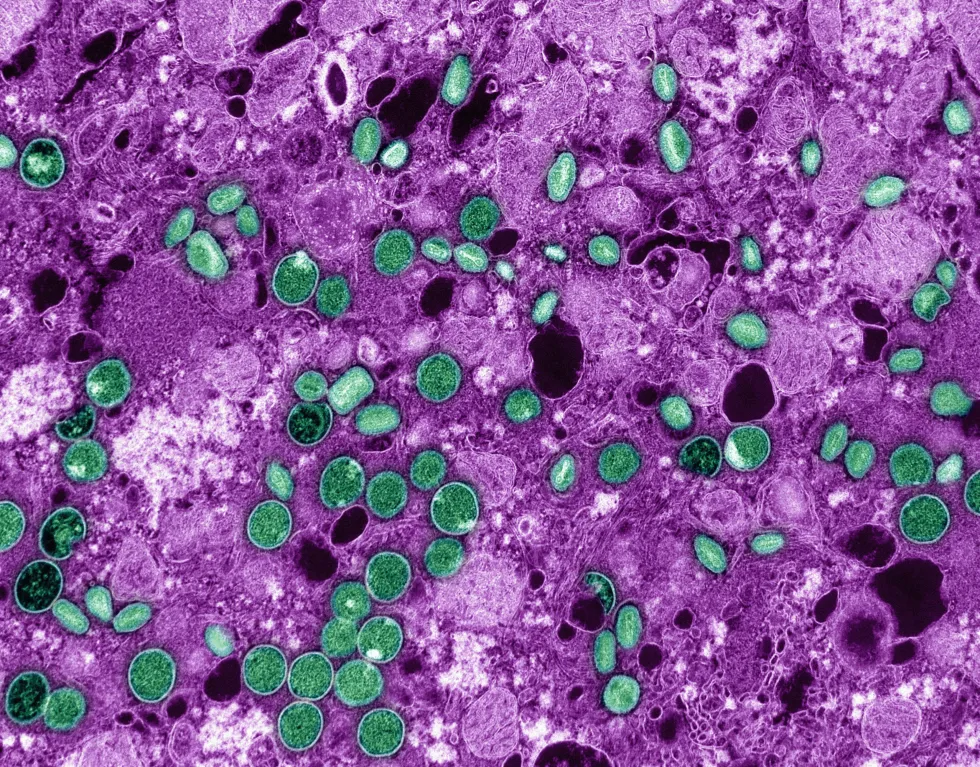By: Nikolaj Kristensen
August 15 2024
 (Source: Wikimedia Commons)
(Source: Wikimedia Commons)
On Wednesday, August 14, 2024, the World Health Organization declared mpox a global health emergency.
The announcement followed a steep rise in incidents in the Democratic Republic of Congo (DRC) in the past year, with one type, or clade, of the virus showing a high mortality rate among children.
The virus has spread to other African countries, and according to the WHO, there's a potential risk of it spreading further within Africa and outside the continent.
"The emergence of a new clade of mpox, its rapid spread in eastern DRC, and the reporting of cases in several neighboring countries are very worrying. On top of outbreaks of other mpox clades in DRC and other countries in Africa, it's clear that a coordinated international response is needed to stop these outbreaks and save lives," WHO Director-General Tedros Adhanom Ghebreyesus said in a statement.
Logically Facts explains what mpox is, why cases are rising, and some of the misinformation narratives that have historically surrounded it.
The mpox virus causes a disease similar to smallpox but less severe. The symptoms are fever, rashes, headache, muscle or back pain, fatigue, and enlarged lymph nodes, usually lasting two to four weeks, according to the WHO.
The current outbreak in the DRC shows a fatality rate of about five percent, but it is higher for babies. There's no treatment for mpox other than supportive care and pain control.
Mpox was previously known as monkeypox – a name it was given after the virus was first discovered in captive monkeys in 1958 – but the WHO changed the name after the outbreak of the disease in 2022, which led to racist and stigmatizing language online.
The virus was first detected in humans in the 1970s, but more severe clades have been spreading in recent years, notably within the DRC. Last year, the number of reported cases in the country increased significantly, and already, the number of cases reported so far this year has exceeded last year's total, with more than 15,600 cases and 537 deaths.
The virus can spread between people through close contact, such as touching, kissing, or intercourse. It is not exclusively sexually transmitted and can also spread to people from infected animals.
Lone Simonsen, a professor in epidemiology at Roskilde University in Denmark, told Logically Facts she wasn't surprised to hear that the WHO has declared a global health emergency over mpox. There's been a steep rise in incidents, with one clade of the virus showing a very high fatality rate — almost 10 percent — among babies.
Simonsen explained that two clades are causing incidents right now. The less prevalent one is clade 1b, a relatively new variant of the clade 1 virus discovered about a year ago, which is circulating in the Eastern part of the DRC and has spread to four other African countries – Burundi, Kenya, Rwanda, and Uganda. "It affects grown-ups, but isn't that deadly according to my best estimates," said Simonsen.
People infected with the clade 1b variant get rashes on their genitals, suggesting the spread happens primarily through intercourse. Simonsen explained that this type of virus transmits less effectively than, for example, COVID-19, a respiratory virus.
Simultaneously with the rise of the new clade in Eastern DRC, the old clade has suddenly become much more virulent in the Western parts of the country. This clade has proved especially fatal to children, but it doesn't travel well as it transmits from animal to human and, therefore, is more of a local problem and less of a worldwide concern, explained Simonsen.
"But with an almost 10 percent fatality rate among children, it's worse than much else. It's really devastating," she said. This echoes concerns from Save the Children who, before the WHO's declaration, urged global authorities to decide if the spread of the virus constituted a global emergency in light of the high child death rate.
The WHO also declared mpox a global health emergency in 2022 after the virus was spread through sexual contact for the first time, and cases were confirmed in several countries around the world. During that outbreak, gay and bisexual men made up the majority of cases, and the virus was mainly spread through close contact. The global health emergency was called off about a year later.
Simonsen said that the 2022 outbreak was among a relatively small group that was relatively easy to vaccinate. But in the current 2024 outbreak, the spread of the clade 1b virus has increased between heterosexual sex partners, unlike in 2022, where it was more commonly among men having sex with men. "So, it looks more like the early days of HIV," said Simonsen.
In 2022, mpox cases gave rise to many instances of misinformation, much of it casting blame for the outbreak on certain groups and individuals. One false claim suggested that Pride celebrations had caused the outbreak. Another false claim was that Microsoft founder Bill Gates, often the target of misinformation, was responsible for the virus.
The WHO's declaration is meant to spur donor agencies and countries into action. Vaccines against the virus exist, but access in Africa, where they are most needed, is lacking.
Africa Centres for Disease Control and Prevention, the continent's top public health body, recently said that the continent needs more than 10 million vaccine doses, but only about 200,000 are available. Africa CDC said on Tuesday that there was a clear plan to secure three million doses of the vaccines this year.
However, according to Reuters, only 65,000 doses are likely to be available in the short term, and campaigns are unlikely to begin before October at the earliest.